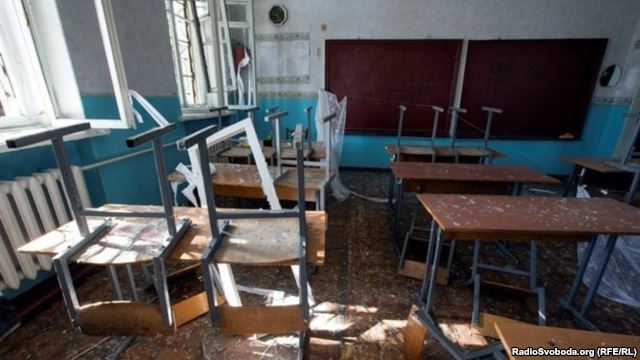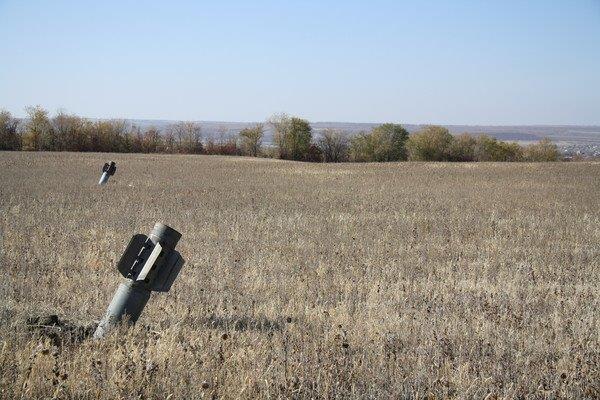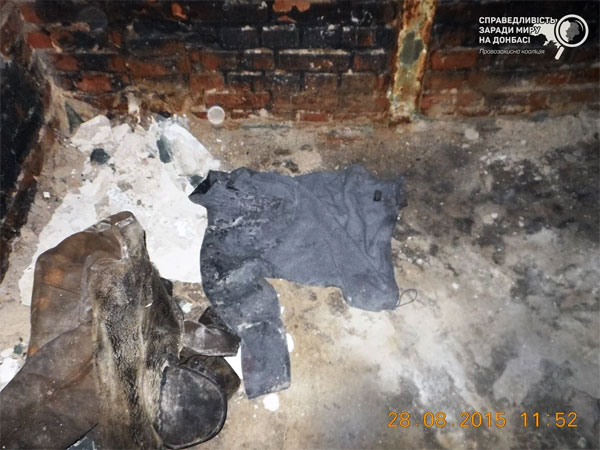Kyiv school #309 in Darnytsya (a district in Kyiv – ed.) is one of those who started teaching 218 children from Donbas refugee families on September 1 this year. School principal Olha Tymoshenko told Radio Liberty there had been no problems with the children’s adaptation: the school did everything in its power for the new pupils not to need anything.
The conditions for the children were created without additional pressure on the budget. “We did not open new classes,” the principal explains. “The pressure on the budget would have grown had we opened an additional class. We filled up the ones we had: for example, we had 30 children, now we have 38-40. This is more work for the teachers, but we can take it. We are not getting paid more for these kids. We just made room for them.”
Donetsk National University is one of the universities that left the combat zone. Its professors and students have set up in Vinnytsya. Dean of the University Roman Hryniuk admits: there is not enough material or equipment to ensure a normal educational process. “Unfortunately, the entire base: lab equipment, computer equipment, educational literature, remained in Donetsk,” the dean says. The University has to use its own efforts to renovate two residences in Vinnytsya, and this, according to Hryniuk, needs over a million Hryvnia.
Not everyone can leave
According to the Ministry of Education, over 30 thousand students from Donbas started learning at new schools on September 1, over 5 thousand university students from Donbas are studying at different universities. 14 higher education institutions either moved or are moving. Besides schoolchildren and university students, refugee families also include preschoolers (about 9 thousand children).
There is a new bill that proposes to ensure the right to education of these three categories – both among the refugees and those who remained in the ATO zone. The Ministry of Education, the representative of the President for the peaceful regulation of the conflict in Donbas are involved in the preparation process, the parliamentary committee for education supports the initiative.
Education Minister Serhiy Kvit explains: the new law will regulate the educational transfer process outside of the conflict zone, moving universities and educational institutions and their material and technical equipment outside the conflict zone. As to educational institutions in the conflict zone, the bill, for example, could include a mechanism of issuing Ukrainian matriculation certificates and diplomas to those who graduate in the conflict zone. “We will allow university graduates (bachelors and masters programs), as well as school graduates to receive Ukrainian diplomas or matriculation certificates if they want to. There is a big number of people who cannot move for various reasons,” says the minister. (According to the Ministry, at least 200 schools are currently functioning in the Donbas districts controlled by the mercenaries.)
The Education Ministry wants to solve the problems of students from Donetsk and Luhansk oblasts who have not yet officially transferred to other universities, but have audit status in universities outside of the conflict zone. According to Serhiy Kvit, by December 12 all such students have to declare where they want to study and apply accordingly. Starting the following semester, they are offered free education.
Money from the budget and donations
The President’s representative for the peaceful regulation of the conflict in Donbas Iryna Herashchenko says: the money for the refugees’ needs should be part of the project of the state budget for the next year. The state is also counting on foreign aid.
“We are planning a large-scale conference for donors in January to restore the territories of Donbas the Ukrainian government controls. It’s obvious that out of the 1,5 billion Euros that we have already confirmed, part will be directed at the creation of new jobs. This obviously regards the professors who moved as well. Some of the money will go to projects in education and medicine,” says Iryna Herashchenko.
Educators meanwhile say that they can accept refugee children, but they need help. Within three months, 30 refugee children left school #309 in Kyiv. Some families moved to other, smaller cities, some returned home – to the territories under terrorist control in Donbas. The children had no problems at their new schools: they had enough desks and textbooks. It turned out their parents were unable to afford living in the capital.





